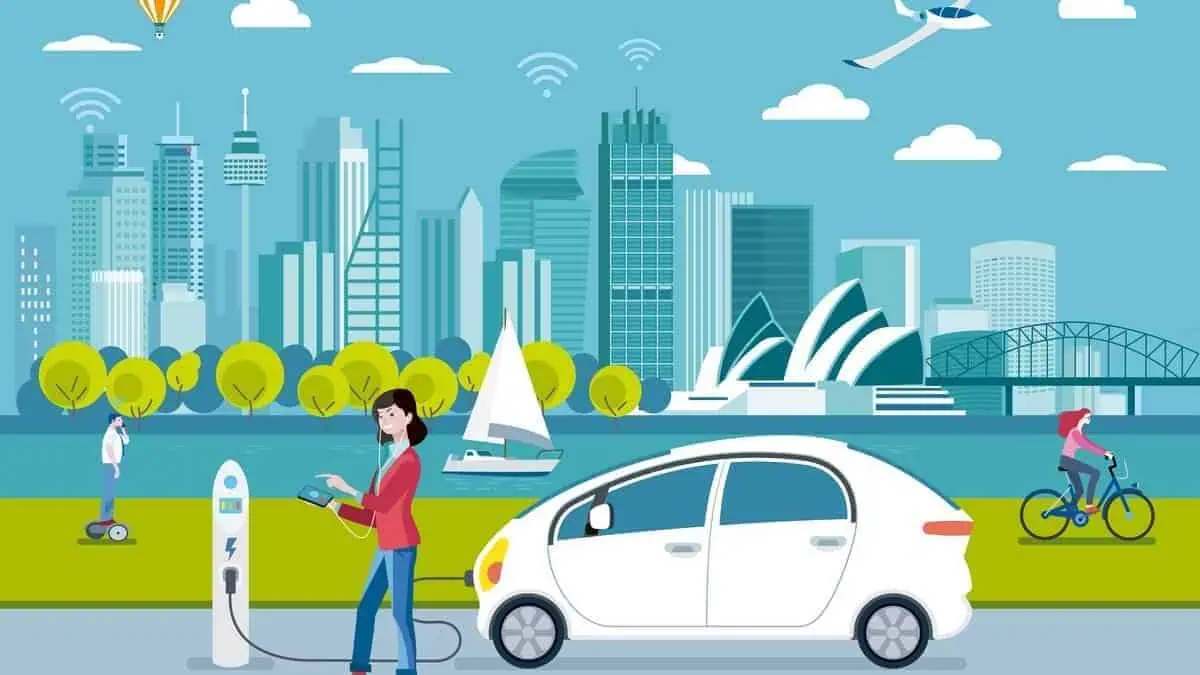Bushfires and climate change impact both California and Australia, where people drive bigger automobiles and trucks than is typical in developed nations. However, they diverge in terms of electric vehicles and vehicle laws.
Australia has lagged behind most affluent countries, whereas California has been chasing electric and low-carbon automobiles for decades.
In the first half of 2022, sales of new light-duty vehicles in California were 16% made up of plugin electric vehicles. Meanwhile, only 2% of vehicles sold in Australia are electric, and Tesla accounts for most of those sales.
That said, Australia is contemplating how to proceed despite not having any laws governing CO2 emissions or car fuel economy.
According to the local auto industry, Australia should trail China, New Zealand, the US, and Europe in electrification. Furthermore, the local industry suggests 98-143g CO2/km (for light cars and SUVs) as opposed to the 43 g CO2/km recommended European vehicle emission requirements for 2030.
However, the proposed Australian objective would lead to a slow shift that would have little to no impact on the CO2 emissions from the transportation sector, as the new research asserts.
According to The Driven, the same excuses for a slow transition have been used in California for decades:
- The cost of electric vehicles is too expensive.
- The infrastructure is insufficient to support them.
- Their driving ranges are too short.
- Some models are not accessible.
Although some of these problems are legitimate, most of them are outdated. Notably, Australia’s situation in 2022 will be quite different from California’s when it first started electrification.
To explain it better, these are the reasons why the four mentioned issues may be exaggerated at the moment.
1. Limited range
Australian and Californian drivers cover comparable annual miles. Most journeys in both areas are well within the capabilities of electric vehicles. Additionally, the majority of households in both regions have two cars. This implies that buyers can use a different vehicle for longer journeys if necessary.
Furthermore, the average range of electric vehicles on the market in 2013, when electric vehicle sales in California surpassed Australia’s current level of 2%, was 179 kilometers (111 miles). It is now 443 kilometers.
2. Lack of charging infrastructure
Most early adopters of electric vehicles in California and other markets, such as Norway, charge in their driveways or garages at home. Even more, people live in single-family homes in Australia than in California. These homeowners’ ability to charge their cars at home lessens the demand for public charging stations.
To allow occasional charging and longer trips and support smaller families without home charging, public charging may be necessary. However, early market growth does not require governmental infrastructure.
Furthermore, the number of charging stations per person in Australia is already equal to that of California in 2016.
3. High prices
The typical new car costs AU$40,729 (US$28,000) in Australia. At that price, electric cars with a 400 km range might be offered. For instance, the base price of the 2023 Chevrolet Bolt in the US is US$25,600 (AU$37,000). And the Renault ZOE costs AU$37,400 to purchase in Australia up until 2020. Both variants have a 400km or so range.
In comparison to conventional vehicles, consumers have demonstrated a higher willingness to pay for electric vehicles. This may be partially attributable to the fuel and maintenance cost savings.
4. Lack of models
Global sales of 316 electric and 162 plugin hybrid vehicles started in 2022, including pick-up trucks, utes, and SUVs.
Since automakers prefer to export these models to markets with supporting electric vehicle policies, there are few options or affordable electric vehicles available in Australia. Having said that, offering automakers the incentive to sell them there might be all that is necessary to make these vehicles available in Australia.
Therefore, Australia might be well prepared for a quick transition to electric vehicles if it adopts more encouraging policies. Australia might gain the same advantages California had if it implemented strict fuel economy standards or a sales requirement for zero-emission vehicles.
In order to combat these problems with the transition to electric vehicles, there must be government initiatives through supportive policies. Such encouraging policies assist the conditions for the early electric vehicle market to expand. Aside from this, consumers can be shielded by an electric vehicle mandate from supply fluctuations prevalent in import-only markets.
According to The Driven, supportive policies do this by:
| •giving carmakers the confidence to develop and supply electric vehicles at multiple price points, in multiple body styles, and with long driving ranges•giving providers confidence to roll out charging infrastructure•giving consumers the supply of electric vehicles they are waiting for. |
It is important to remember that Australia is not the first country to face similar difficulties. Despite being a major producer of electric vehicles, South Korea‘s domestic market was growing slowly. Several electric vehicles from Korea were exported to countries with more favorable policies for EVs.
In response, the government implemented measures to support electric vehicles, which resulted in tripled domestic sales in the country. Impressively, South Korea was able to reach the position of the seventh-largest market for electric vehicles worldwide from being at the 11th position in 2019.
With the appropriate legislation in place, Sweden grew its share of electric vehicle sales from 18% to 62% in just two years, as stated by Federal Energy Minister Chris Bowen at the EV Summit last month.
Having mentioned all that, these strategies might also benefit Australia and help it toward the electric vehicle shift. Australia need not be one of the countries that require a slower transition, and range, infrastructure, and model availability issues can all be easily resolved.
In fact, incentives for purchasing electric vehicles currently exist in every state, including rebates, registration discounts, and road tax exemptions.
Perhaps all that is required is for the federal government to create regulations that encourage the use of electric vehicles.
Notably, Australia is poised for rapid market expansion due to the outstanding technological advancements and lessons gained in California and elsewhere.






